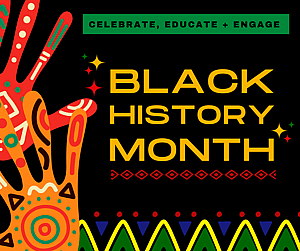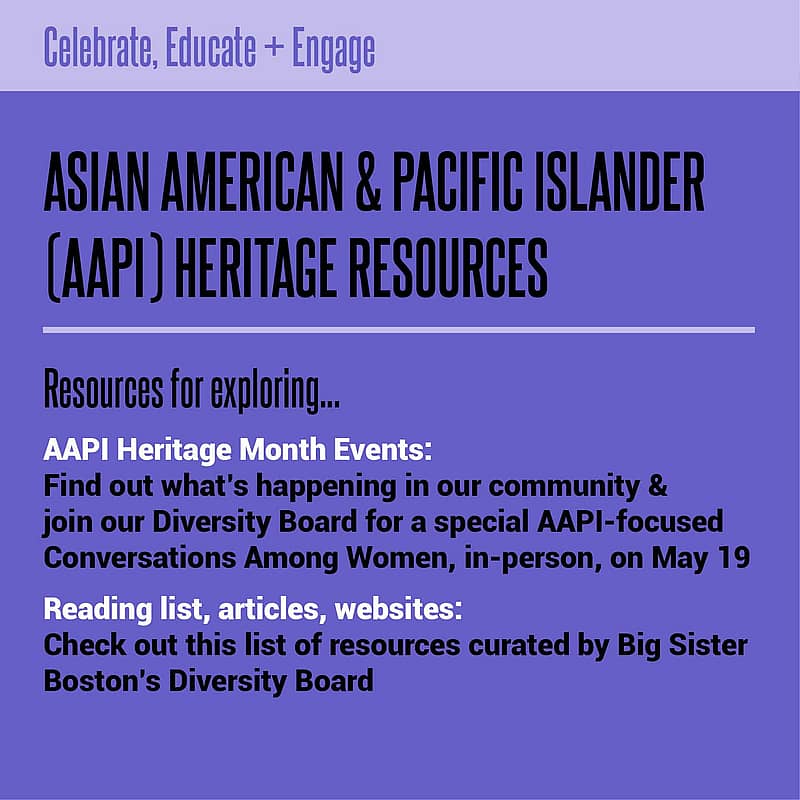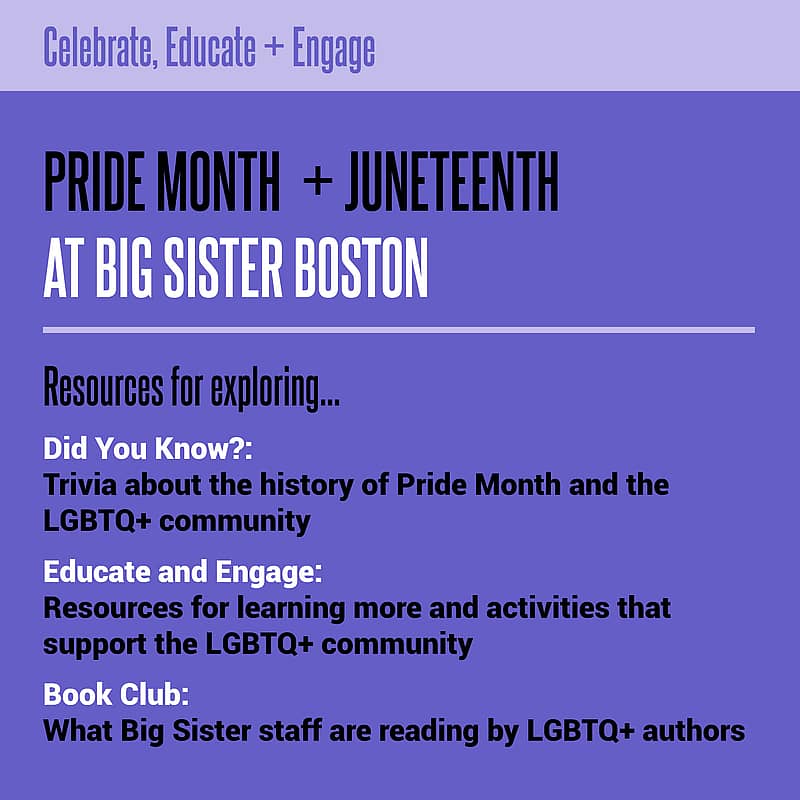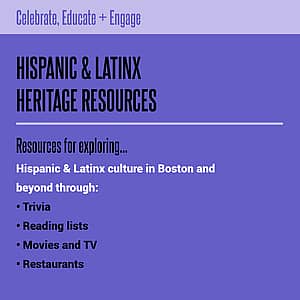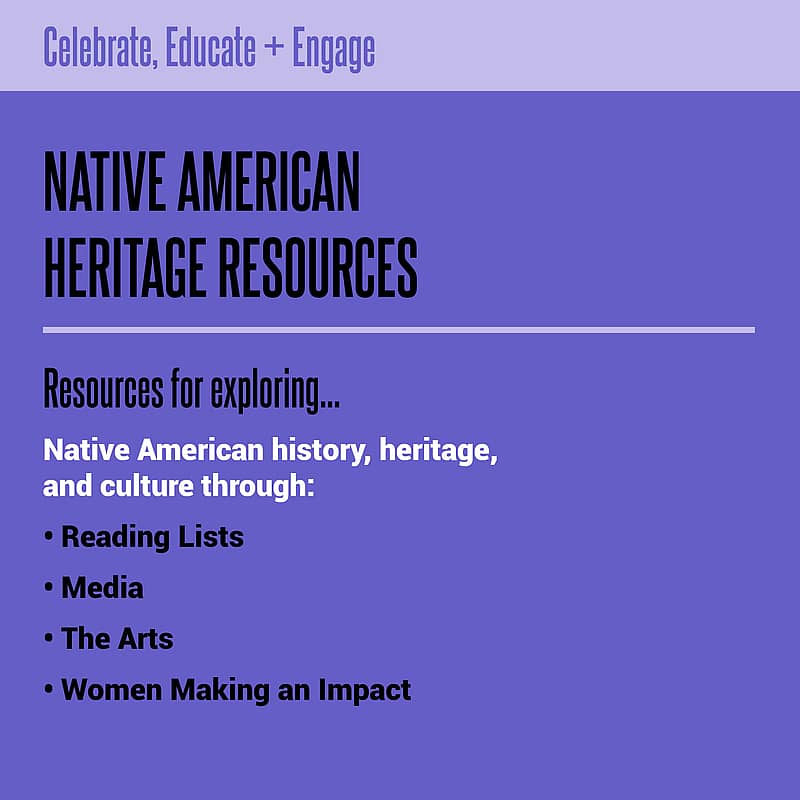Who We Are
Commitment to Diversity, Equity & Inclusion
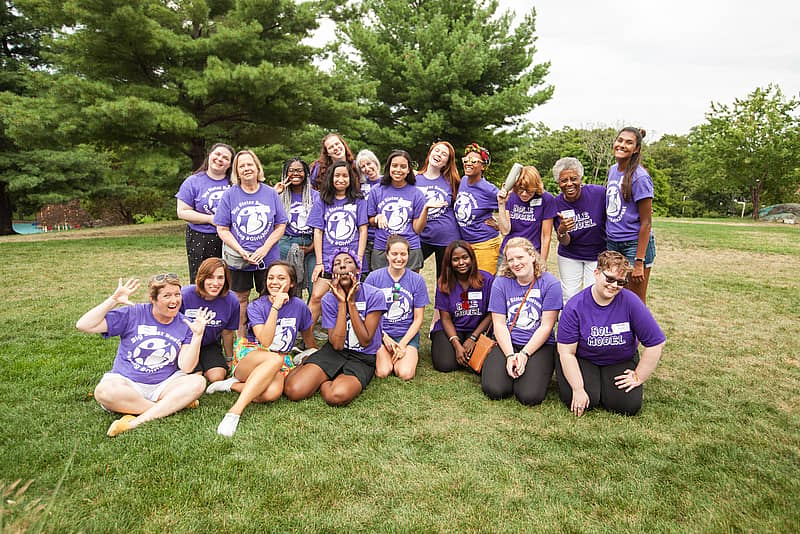
Invested
Building a Bolder, Braver, Better Big Sister Boston
Big Sister Boston is passionately committed to Diversity, Equity & Inclusion (DEI). It is at the core of our mission, values, and vision of our organization, and reflected in the work that we do in partnership with work that we do in partnership with our board, staff, volunteers, youth, and families. Yet, we know there is more work to be done.
We Believe
Big Sister believes that the girls and young women in our programs deserve access to a diverse community of leaders, ambassadors, and advocates who value and understand them. Although we have initiated programs encompassing many areas of DEI, it is our intention to have an impact that fosters a culture of community, collaborative leadership, and shared partnership, in this very important work of diversity, equity, and inclusion.
Big Sister will continue to advance Diversity, Equity & Inclusion by working to:
- expand the diversity of Big Sister Boston’s staff, mentors and board members to reflect the diversity of our Little Sisters
- create an inclusive community that practices and promotes a sense of belonging and,
- increase the understanding of equity and remove barriers that prevent Little Sisters from reaching their full potential.
We Are Invested
To support these efforts, we launched the DEI Ambassadors initiative. The Ambassadors work to create structures for us to develop clearer practices, build stronger communicative relationships, and continue to align to move our equity work forward with accountability, keeping staff input and insight in mind. Staff members serving in these roles receive a stipend as we believe it is important that they are acknowledged for the additional role they are fulfilling on behalf of the organization.
Big Sister Boston’s Diversity Board is an external board which aims to enhance our mission and to promote a culturally rich, inclusive community where all Big and Little Sisters are supported. Specifically, the Board focuses on attracting and retaining women of color as mentors, advocates, and donors; engaging the organization with communities of color; securing resources for culturally responsive programs and services; and supporting diversity and inclusion among Big Sister’s staff and boards.
Racial Sensitivity Guide & LGBTQ+ Resource Guide
We also recognize a need to support our community and our Match Support Specialists have worked hard to put together resources to provide additional support to our Big Sisters. Whether continuing your learning journey or navigating complex conversations with your Little Sisters, we hope the Racial Sensitivity Guide and LGBTQ+ Resource Guide are tools that can aid you in that journey. Please stay tuned as we work on expanding our toolkit of resources.
Educational & Engagement Resources
Defining Our Sisterhood
We are both a gender- intentional and gender-inclusive organization. We welcome all who identify as women, girls, non-binary, trans, and gender non-conforming to be Big and Little Sisters in our program. We recognize that to be 100% invested in girls it is essential to support trans and gender-diverse youth in our community. Any Bigs or Littles who transition while matched are affirmed and supported in our Big Sister community.
Big Sister Boston creates a Sisterhood that fosters a sense of belonging by embracing diversity and continuously striving for greater inclusion and equity. By supporting our community members’ individual identities and lived experiences, we create a space where they can grow and become their best selves.
The Sisterhood we create is formed by the relationships and meaningful experiences we share together. The foundation of our Sisterhood is to value those who wish to be a part of it. Our professional staff are here to support the individual journeys of our Big and Little Sisters, and the development of affirming relationships. We want to ensure that all youth, including gender-diverse youth, can participate in these impactful relationships.
For Mentors:
LGBTQ+ people are welcome to serve as mentors in our programs. At Big Sister Association of Greater Boston, we recognize the importance of finding role models with a diverse range of lived experiences. Adult members of the LGBTQ+ community can offer unique guidance for youth exploring their own identities. LGBTQ+ Bigs can also provide insights regarding strategies for self-advocacy and navigating homophobia, transphobia, or biphobia. As a mentor in our programs, you could draw on your experiences of exploring and expressing your identity to provide support and advice for youth in your community.
For Youth:
All LGBTQ+ youth are welcome to enroll in our program as mentees. Regardless of your gender identity, if you feel that Big Sister Boston is a safe and supportive community for you, then it is where you belong. We also support transitioning youth. Transitioning does not affect your ability to participate in our programs or be a member of the Big Sister community.
Big Sister Boston embraces the diverse experiences and identities of our Big and Little Sisters. We are dedicated to supporting you wherever you are in your journey. We provide our staff and mentors with training and resources on how to the support members of the LGBTQ+ community.
A Big Sister is someone you can have fun with, as well as someone with whom you can have important conversations. Your mentoring relationship will be guided by your preferences. You are in charge of what parts of your story or identity you want to share with your Big Sister. Your Match Support Specialist will provide additional support and work to ensure that you feel comfortable in your relationship.


